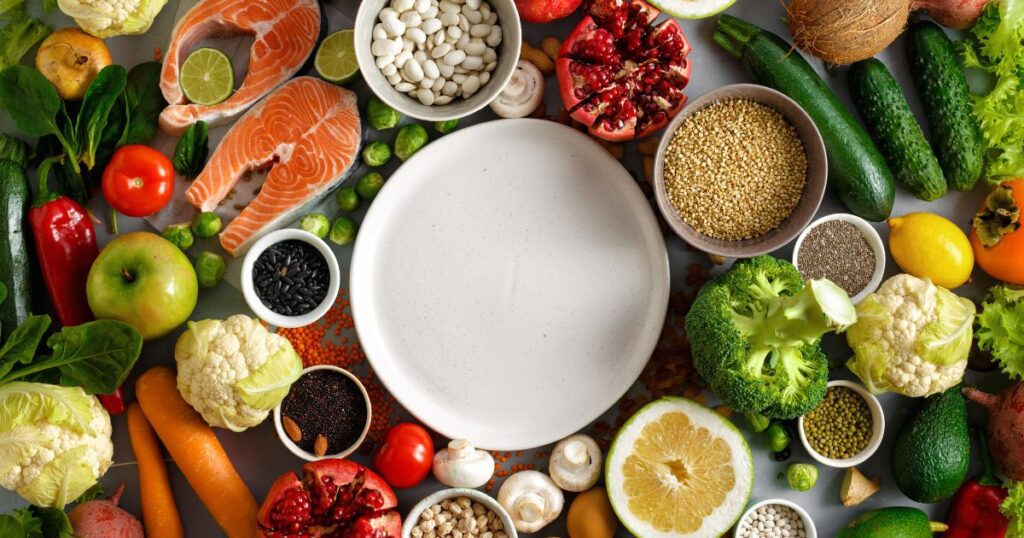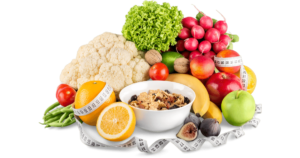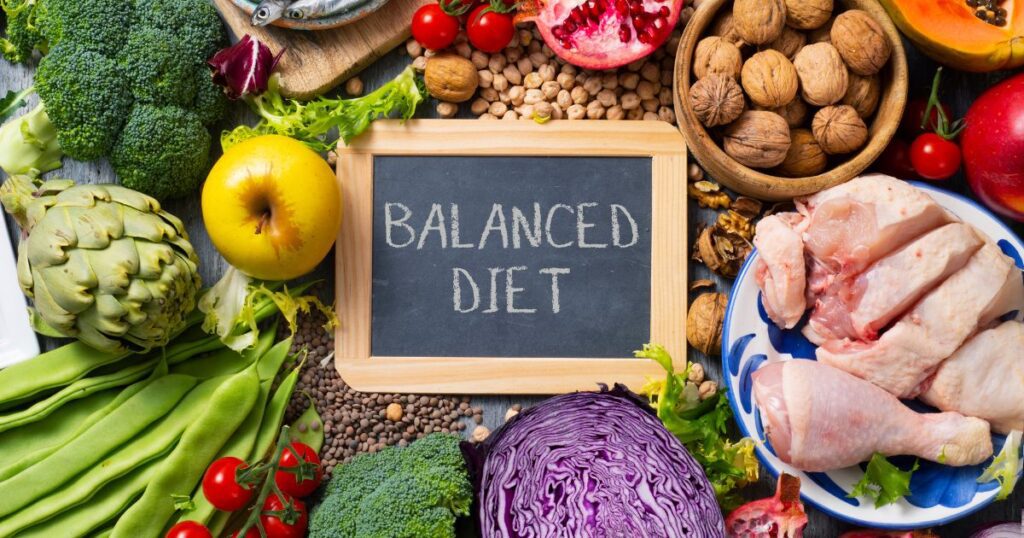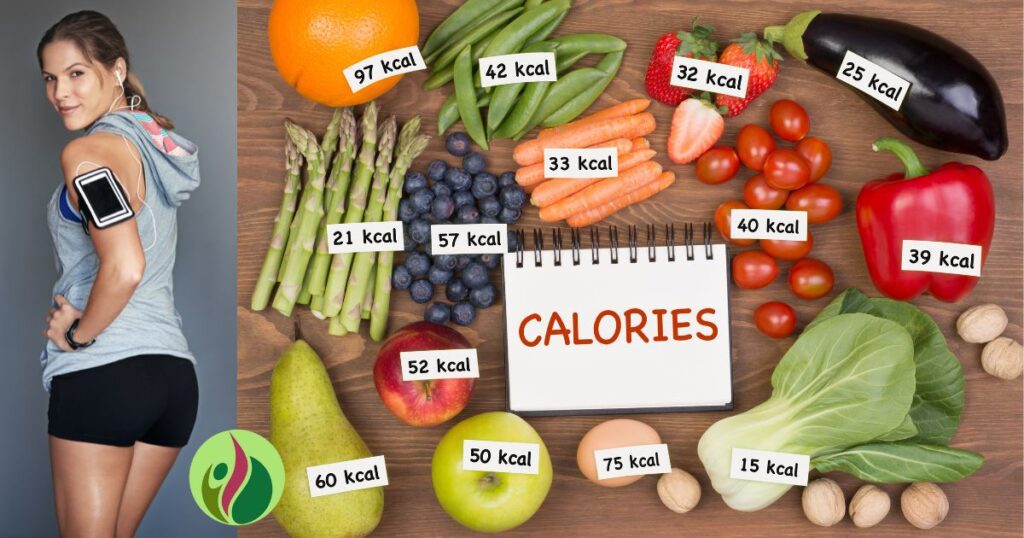A healthy diet is one that assists to maintaining or enhancing overall health. The body receives the key nutrients it needs from a balanced healthy diet, including liquids, macronutrients, micronutrients, and enough calories. A healthy diet for those in good health is simple and mostly consists of fruits, greens and whole grains, with little to no packaged food and sweet drinks. A wide range of plant-based and animal-based meals can satisfy dietary needs, while vegans must obtain their vitamin B12 from sources other than animals.

In some nations, people must purchase items with nutrition data labels in order to compare the ingredients that are important to their health. A healthy lifestyle consists of both regular exercise and a sensible diet. A healthy lifestyle may reduce the risk of developing diseases like cancer, heart problems, type 2 diabetes, hypertension, and overeating. For individuals with a variety of symptoms or disorders, there are highly specialized healthy diets known as medical nutrition treatment. Different theories also exist about such specific diets, such as food therapy in conventional Chinese medicine.
Scientific research has revealed that eating a diet high in fruits and veggies has a number of positive effects on your health, including lowering your risk of developing certain chronic diseases and maintaining good physical health.

Making significant dietary adjustments, though, can occasionally seem very burdensome.
It could be preferable to start using a few tiny modifications rather than several major ones. Additionally, starting with one thing instead of tackling all of them at once is probably easier to handle.
You may stay healthy by following a healthy eating plan.
There are several methods to improve your health overall through eating well.
You can monitor your weight and minimize your chance of developing some chronic disorders by making wise food choices.

Eating well can lower your risk of developing:
- Obesity and being overweight
- Cardiac disease
- Diabetes (Type 2)
- Increased blood pressure
- Certain cancer kinds
A balanced diet that incorporates a variety of nutrient-rich foods and beverages is what it means to eat healthily. Additionally, it implies absorbing the appropriate number of calories.
Pick a variety of nutritious foods.
Every food group offers a wide variety of nutritious selections. Pick a range of items you like, such as:

Fruits: Apples, berries, oranges, mangoes, and bananas are examples of whole fruits.
Vegetables: Veggies such as peppers, okra, spinach, sweet potatoes, broccoli and beets.
Whole Grains: Brown rice, barley, oats, bulgur and whole-wheat bread are examples of whole grains.
Protein Source: Lean meats and poultry, eggs, shellfish, beans and legumes, nuts, seeds and tofu are examples of proteins.
Low Fat Dairy: Dairy products with low or no fat, such as low-fat or fat-free milk, yoghurt, cheese, carbohydrate and vitamin fortified drinks (soy milk) or soy yoghurt.
Oils: Vegetable and olive oils, as well as the oils found in foods like almonds, avocados and shellfish.
How can we define balanced diet?
What exactly comprises a healthy diet? To put it simply, it’s a diet that provides the nutrients necessary for your body to perform effectively. The relevance of nutrition is seen in consuming the proper number of calories. Your body will get proper nutrition, w hen you eat a wide range of foods high in calories, such as fruits and veggies, whole grains and other protein sources.

Nobody can ignore the importance and impact of a balanced diet for leading a healthy lifestyle. Maintaining a nutritious healthy diet and keeping in mind to fulfill all the important nutrients that your body needs will help you live a healthy lifestyle. A good meal plan aids in achieving a healthy body weight and lowers the risk of developing long-term conditions like diabetes, heart disease and some type of cancers.
Should Know About Calories
The amount of energy that is contained in a food is determined by the certain amount of calories in that food. The quantity of energy that is contained in a food is determined by the certain amount of calories in that food. For essential bodily processes like breathing, walking and learning, your body needs the stored calories.
The amount of calories required varies by age, sex and level of physical activity; however the average individual needs roughly 2,000 calories per day to keep a healthy weight.

It is important to remember that individuals who workout more frequently need more calories than those who do not and men typically require more calories than women do. It’s also important to bear in mind that calories’ origins are just as significant as their quantity. Filling your plate with empty calories or calories without any nutritious value is not helpful in any manner.
| Person | Calorie requirements |
| Sedentary children: 2–8 years | 1,000–1,400 |
| Active children: 2–8 years | 1,000–2,000 |
| Females: 9–13 years | 1,400–2,200 |
| Males: 9–13 years | 1,600–2,600 |
| Active females: 14–30 years | 2,400 |
| Sedentary females: 14–30 years | 1,800–2,000 |
| Active males: 14–30 years | 2,800–3,200 |
| Sedentary males: 14–30 years | 2,000–2,600 |
| Active people: 30 years and over | 2,000–3,000 |
| Sedentary people: 30 years and over | 1,600–2,400 |
Your daily caloric intake’s source is also crucial. “Empty calories” refers to foods that are primarily caloric and offer very little nutritional value.
Foods that contain empty calories include the following examples:

- Cookies, donuts and chocolate cakes
- Processed meats
- Sodas, energy drinks and sugar-sweetened fruit drinks
- Fries, chips and ice cream
- Pizza and soda
How to Lose Weight with Fruits and Vegetables

3 thoughts on “What does healthy diet mean?”